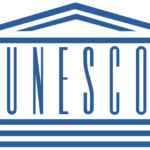Scenario Modelling for Education in Lebanon - UNESCO
Background:
Lebanon’s education sector faces severe challenges due to an extended economic crisis, political instability, and the presence of a large refugee population. These crises have strained educational infrastructure, led to lower teacher salaries, and limited access to essential learning materials. The COVID-19 pandemic has further impacted the sector, affecting both formal and non-formal education, which is critical to meeting the needs of Lebanese and refugee children alike.
UNESCO initiated a project aimed at using scenario modelling to guide medium-term planning and investment strategies for Lebanon’s education sector. This project equips decision-makers with reliable data and scenario-based insights to ensure resilience and adaptability within the education system.
Triangle’s Assignment:
Triangle is engaged in scenario modelling for Lebanon’s education sector. The assignment involves developing simulation tools and frameworks to analyze how factors such as financial, demographic, and policy changes affect sectoral outcomes, supporting evidence-based decision-making for the Lebanese education system.
Objectives:
The assignment has four key objectives:
- To design and implement scenario models projecting educational outcomes based on funding variations, population shifts, and policy changes.
- To assess how different scenarios could impact educational access, quality, and equity, especially for vulnerable groups, including refugees.
- To formulate recommendations aimed at increasing the education system’s resilience to ongoing and future crises.
- To outline policy options that prioritize resource allocation and support the most marginalized segments of Lebanon’s student population.
Research Approach & Methodology:
Triangle employs a robust methodology comprising:
- EPSSim Simulation Model: Using the Education Policy and Strategy Simulation (EPSSim) model, Triangle projects demand for both formal and non-formal education under various scenarios. The model accounts for demographic trends, enrolment rates, and resource needs, providing a quantitative basis for the recommendations.
- Stakeholder Engagement: Conducting key informant interviews with education officials, NGO representatives, and community leaders to gather contextual insights, ensuring alignment with Lebanon’s educational landscape.
- OECD-DAC Framework: Findings are organized according to the OECD-DAC criteria, focusing on sustainability, inclusivity, and adaptability to align with UNESCO’s objectives of creating a resilient education system.
Project:
Scenario Modelling for Education in Lebanon – UNESCO

Duration:
January 2023 – June 2023
Lebanon
